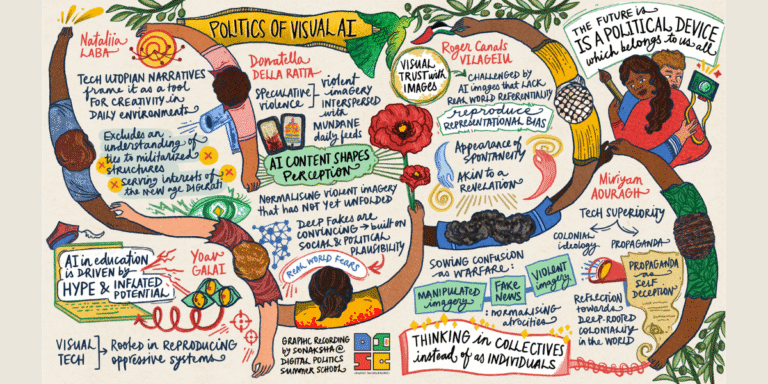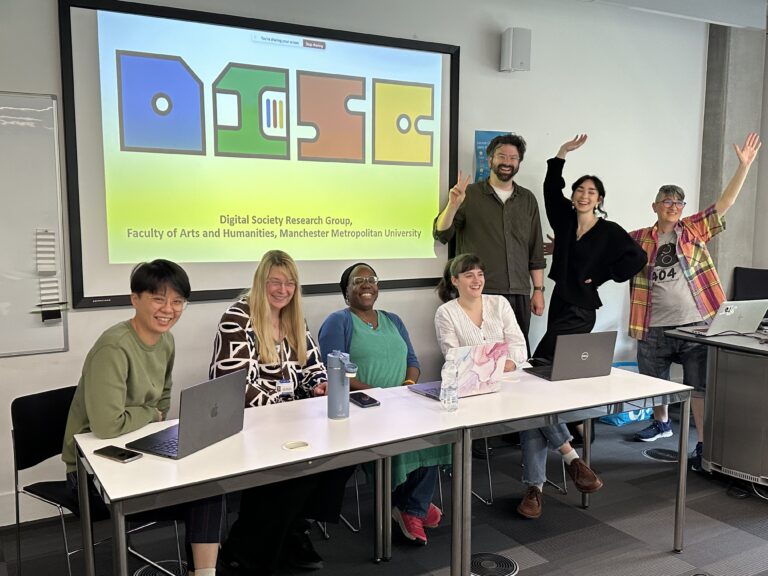Editors: Jessica Elias and Adi Kuntsman, for consideration with Bristol University Press
When AI image generators were popularised in 2023 and were rapidly embraced by political actors and ordinary users around the world, synthetic images were often perceived as leading to a new crisis of deepfakes and misinformation. Some media scholars depicted AI as a significant threat that can lead to a new scale of media manipulation, an erosion of the sense of truth and trust in media and democratic institutions (Gregory, 2023); and a broader crisis of visual evidence (Mahony and Chen, 2024; Twomey et al., 2023). Others suggested that visual generative AI is merely a new development in a longer history of visual mediation, and, as such, has both dangers and affordances. Rather than seeing AI-generated images as necessarily “fake” or misleading, they propose to examine them as a new form of synthetic realism and a potentially powerful political storytelling (Hausken 2024, Schofield, 2023). But while the global landscape of synthetic image production and circulation has evolved with unprecedented speed over the last two years, scholarship at the intersection of visual generative AI and politics is still limited and fragmented. Discussions of technologies, practices and reception of synthetic images often lacks critical feminist, decolonial, and social justice perspectives; and academic and media narratives are yet to represent the complexity of global visual AI politics beyond the Global North. On a conceptual level, much remains unexplored, beyond the polarising approaches of misinformation and loss of authenticity versus creativity and machine-driven mediation: the biases in representation; the absence of visual digital and political literacy; the lack of social justice considerations in both the techno-hype around AI-enabled possibilities and the fears around AI-induced harms; and the need for complex and interdisciplinary thinking around the rapidly expanding use of AI-generated images in political landscapes. We approach the challenging task of exploring the politics of visual generative AI, at the time when this technology offers hope to activists, human rights defenders, and global communities who strive to imagine a different, better reality; while simultaneously being conscripted by most violent, genocidal regimes, to generate speculative violence and conditions of political plausibility (Della Ratta 2025), reinforce harmful stereotypes and exacerbate social inequalities.
This edited volume is a first important step in creating a space for theoretical and empirical considerations of visual AI politics and the politics of visual AI. The volume builds on the Digital Politics summer school which took place in June 2025 and extends the call to established and early career scholars, artists and media professionals. We invite contributions by academics from media and communication studies, journalism, human rights, politics, sociology and anthropology, cyberfeminism, Black cyberculture studies, visual criminology, art, and computational science. We will also consider alternative formats such as reports and poetic essays. Topics should include, but are not limited to, the following:
- The use of AI-generated images in political propaganda
- Manipulation and political misinformation using visual generative AI
- Politics of training data for AI image generators
- Representations of politics, war and violence in AI-generated images
- Deepfakes and political trust
- Arts practice amid generative visual AI
- Visual AI activism
- Journalist ethics and practice in the age of generative AI
- Human rights work and visual AI technologies
Publication timeline:
- Chapters due: 15 January 2026
- Internal peer review: by end of February 2026
- Revisions: March-April 2026
- Edited collection submitted to publisher: May 2026
- Publisher’s peer review: by September 2026
- Revisions: September-November 2026
- Full manuscript submitted to publisher: December 2026
- Provisional publication date: first half of 2027[JE1] [AK2]
To be considered, please send a 500 word detailed abstract of your chapter and a very short bio of up to 100 words by 1st of September 2025 to digitalpoliticsmanmet@gmail.com. Accepted authors will be notified by 15th of September.



